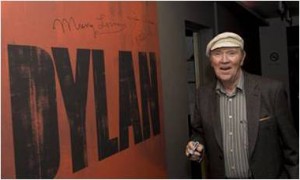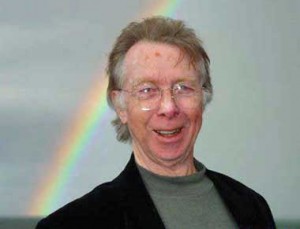As Liam Clancy was dying last fall, the documentary of his life, “The Yellow Bittern,” was about to come out on DVD. The film’s producer, Anna Rodgers, who’d spent five years plumbing the life of the youngest and last surviving member of the iconic group, The Clancy Brothers and Tommy Makem, recalls one of her last conversations with him. “He said ‘I’m going to boost sales for you.’ He was a terrible man for making those dark jokes. We’d say, ‘Liam, stop it,’ but he thought it was hilarious. I have to say, I did laugh to myself afterwards.”
“The Yellow Bittern, The Life and Times of Liam Clancy,” called an “small scale epic” by one critic, will have its only Philadelphia showing on Friday, May 7, at the Philadelphia Irish Center, 6815 Emlen Street, an event sponsored by The Philadelphia Ceili Group.
I spoke to Anna Rodgers by phone this week from her office at Crossing the Line Films in County Wicklow where she was putting the finishing touches on the RTE series, “Growing Up Gay.” A film she directed, “Today Is Better Than Two Tomorrows”–the story of two Laotian 11-year-olds, one in school, the other in Buddhist monastery—was recently screened at The Full Frame Documentary Film Festival in Durham, NC, and she’s also filming a documentary on the Faddenmore Psalter, an eighth century manuscript found in a bog.
You spent the last five years of Liam Clancy’s life with him. What was he like?
Really it’s very hard to say. He was a hard man to get to know in lots of ways. Even though he would be very gregarious, very friendly to people when he met them and he was a great conversationalist, it took time for him to let you in. He was a very deep thinker, very philosophical. You never had an ordinary conversation with Liam. As he was approaching the end of his life, he had an awareness of that, and he had philosophical ideas about what it’s all about, about his own life. He was a great storyteller, and he would tell the same stories over and over but I loved to hear them again and again because I loved the sound of his voice. That’s one of the things I miss the most. It was great fun to go out with him and have a meal. He would have a chat with everone. He was a sociable loner. Alan [Gilsenan, the film’s director] talks about “the capless interviews,” the ones we did in his home when he took his cap off and wasn’t the performer anymore. Then you got more of an insight.
Will we learn anything new and surprising in the documentary?
It’s not that kind of film. There are no big revelations in it. It’s not going to tell you something, if you’re a fan, that you didn’t know about before. It’s the way he tells a story, about his life and the period of time in cultural and political history in which the band existed [the ‘60s in the US]. One of the things in the film that is unique is the unseen archives, including home movies of Liam’s he found in his attic. And these were movies he’d never seen—including film of his own wedding! We also found some footage of his [1964] performance at the Newport Folk Festival filmed by his friend, [film director] Murray Lerner, but it took a couple of years to find that because the images had become separated from the sound.
How did Liam feel about having a film made about his life?
He once came across a grave of someone who had his name 100 years ago and he wondered what his life had been like. He wanted to put down his life story for posterity, to leave something behind for his children and grandchildren. He was very much into that, that a man should tell his story.
Was he able to see the film?
The film came out on Liam’s birthday and he came to opening night in Dublin, actually in a wheelchair. He was very weak. But he still partied all night. He went into the hospital and never came home, but we talked on the phone. We filmed to the very end. We even filmed his funeral. We knew he would have wanted us to. It was beautiful. Not a big show business funeral. Though there were a lot of people there, it felt like a very personal funeral. It was an absolutely beautiful day. It had been raining and there was a rainbow.
Why did you decide to call the film, The Yellow Bittern? Was it for the bird, which is shy and solitary, or the poem/song which is a mournful elegy by a drunken narrator of a marsh bird that has died of thirst?
It was Alan’s idea. We were trying to come up with a title for the film that would separate it from so many of the records, tribute albums and the other documentaries that had been done, including the previous documentary we ourselves had made [“The Legend of Liam Clancy”]. Liam loved that poem. It seemed poetic and lyrical and enigmatic, which hinted at the enigmatic performer who hides behind the mask. Liam recited it for us a number of times and had sung it. In fact, the last thing you hear on the film is actually Liam reading “The Yellow Bittern.” He was on oxygen and his voice was going and he had aged a lot, but you could tell how much he identified with some of the lyrics.
Here you can read a translation of the poem, from the Irish, by Seamus Heaney.


